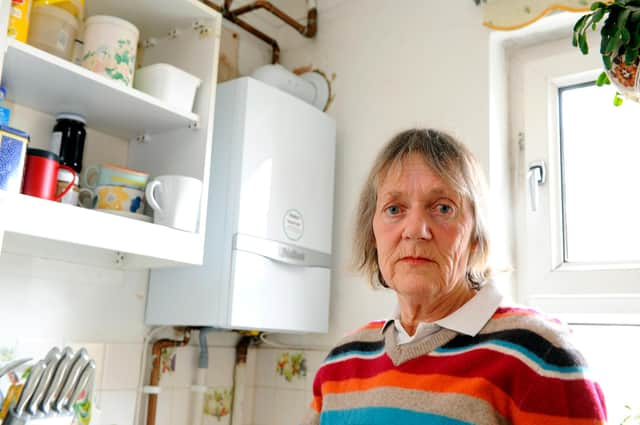How unscrupulous companies are using misleading energy adverts on social media to scam you – Trading Standards Scotland


Unfortunately, this is seen as an opportunity for those looking to scam people out of money.
Over a period of two months, Trading Standards Scotland worked hard to protect consumers from misleading energy marketing adverts. The results are stark: we identified over 400 potentially misleading social media adverts.
Advertisement
Hide AdAdvertisement
Hide AdOur team intervened and have so far rectified or removed 29 web pages, while nine advertising accounts have ceased activity and over 70 live adverts have been removed.
The majority of these accounts were being operated by lead-generation companies which aimed to gather consumers’ personal data in order to sell it on for financial gain.
This unscrupulous practice is deeply worrying.
After the announcement of the UK government’s Green Home Grant scheme in July, which offered vouchers for insulation and double glazing to homeowners in England, trading standards officers saw a marked increase in misleading social media adverts making false claims that energy efficiency grants were available to Scottish consumers for products such as boilers, doors and windows.
Clicking on the adverts led to web pages run by companies where consumers are asked to enter their personal details to find out whether they qualify for a discount.
The impact of energy scams can be devastating.
One customer in Scotland saw an advert on Facebook promising “help to buy windows”. A salesperson arrived at their house at 9pm and quoted a staggering £20,000 for five windows. After negotiation, the price was dropped to around £8,000, but the customer was told the offer was only available that night.
The customer eventually agreed to sign a contract to get rid of the salesperson, which involved taking out finance, and paid a £200 admin fee. They managed to cancel later, but didn’t get their £200 back.
Examples like this are why we teamed up with Home Energy Scotland and Age Scotland to produce a series of advice videos and a podcast about energy scams, reaching over half a million consumers.
We have taken decisive action, but consumers should remain wary of cold callers or social media adverts for energy-saving products on social media.
Advertisement
Hide AdAdvertisement
Hide AdNever accept information offered from these sources without doing independent research, particularly if they tell you there are grants or funding schemes available.
Before agreeing to have any work done, have an impartial assessment carried out on your home to find out which energy efficiency measures will actually be beneficial to your property. Don’t agree to get an assessment done by a company which cold calls you, they will not be impartial.
Our prevention campaign, and the suspension activity we have taken, will help keep many Scots safe. But there is always further assistance on hand.
Home Energy Scotland offers free and impartial advice for anyone looking to save energy in their home on 0808 808 2282. Anyone concerned about nuisance calls should report these online to Scotland’s national consumer advice service, www.consumeradvice.scot, or by calling 0808 164 6000. Scam adverts online should be reported to the Advertising Standards Authority.
By reporting instances we can take further action to prevent scammers exploiting people across Scotland.
Julie McCarron is head of intelligence and coordination at Trading Standards Scotland
A message from the Editor:
Thank you for reading this article. We're more reliant on your support than ever as the shift in consumer habits brought about by coronavirus impacts our advertisers.
If you haven't already, please consider supporting our trusted, fact-checked journalism by taking out a digital subscription.
Comments
Want to join the conversation? Please or to comment on this article.